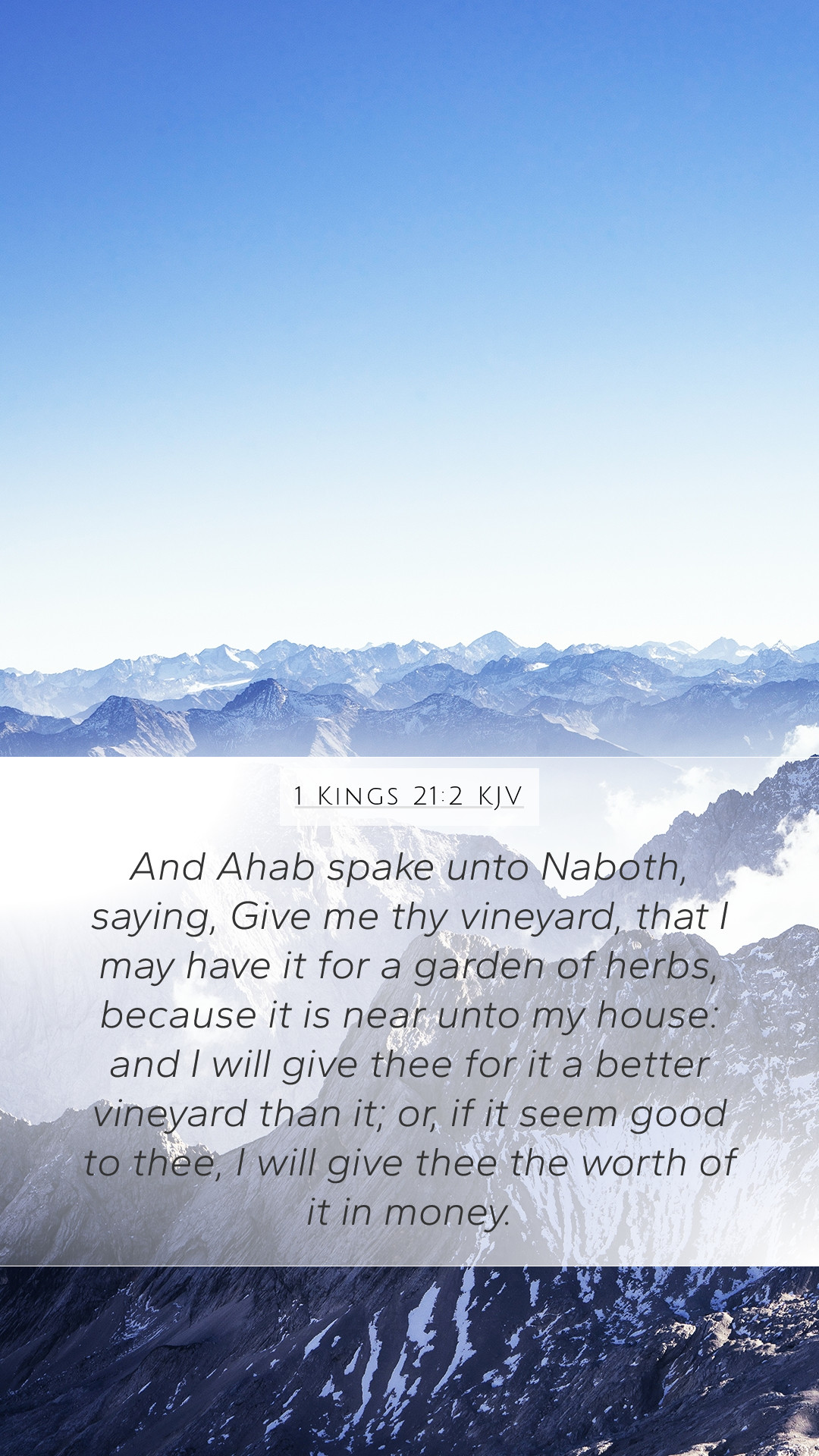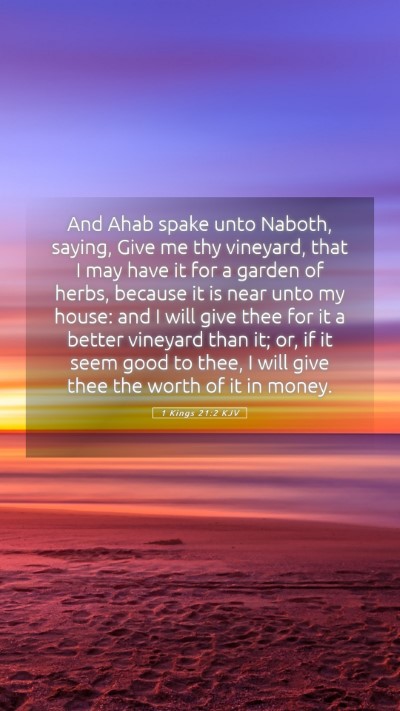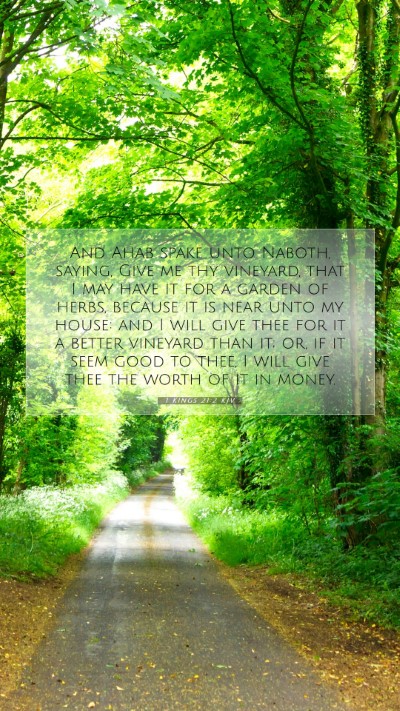Understanding 1 Kings 21:2
Verse: “And Ahab spake unto Naboth, saying, Give me thy vineyard, that I may have it for a garden of herbs, because it is near unto my house: and I will give thee for it a better vineyard than it; or, if it seem good to thee, I will give thee the worth of it in money.”
Bible Verse Meanings and Interpretations
This verse reveals King Ahab's desire to acquire Naboth's vineyard, emphasizing themes of greed, entitlement, and the morality of ownership. Public domain commentaries shed light on various aspects of the scripture, providing insights that enhance understanding.
Commentary Insights
-
Matthew Henry:
Henry emphasizes Ahab's selfishness and lack of regard for Naboth's rights. The king’s request for the vineyard reflects his desire for control and his willingness to overlook justice for personal gain. Ahab's offers—providing a better vineyard or compensating with money—expose the dishonesty of his intentions, as he seeks to possess land that does not belong to him.
-
Albert Barnes:
Barnes reflects on the cultural implications of land ownership in Israel. The land promised by God was to remain within families, making Naboth's refusal crucial as it represents fidelity to divine laws. Barnes also highlights how Ahab tries to make the acquisition seem reasonable, though it is fundamentally unjust.
-
Adam Clarke:
Clarke provides a narrative of Ahab's character, showcasing him as a powerful figure who uses his status to manipulate others. He notes that Naboth’s vineyard had significant familial and emotional value, further illustrating Ahab’s overstepping of boundaries. Clarke also discusses the moral degradation in Ahab's actions, contrasting them with the expected actions of a righteous king.
Theological Implications
This verse highlights the dangers of covetousness and the consequences of infringing upon the rights of others. It invites readers to reflect on the integrity of their own wishes and the impacts those wishes can have.
Application of 1 Kings 21:2
In contemporary life, this verse serves as a reminder to honor personal and communal property rights. The principles of justice and fairness should govern personal desires, aligning one's actions with ethical standards derived from scripture.
Cross References
- Exodus 20:17 - The Tenth Commandment, addressing coveting one's neighbor's possessions.
- Micah 2:2 - Discussing the sin of taking fields from others.
- James 4:2 - Identifying that greed leads to conflicts among people.
Conclusion
1 Kings 21:2 serves as a rich source for Bible study insights and Bible verse commentary. Emphasizing the importance of integrity, justice, and respect for others' rights, it remains relevant to Bible study groups and individuals seeking to deepen their understanding of Scripture. Through careful biblical exegesis and practical applications, readers are encouraged to examine the meaning of Bible verses and how they inform daily actions.


